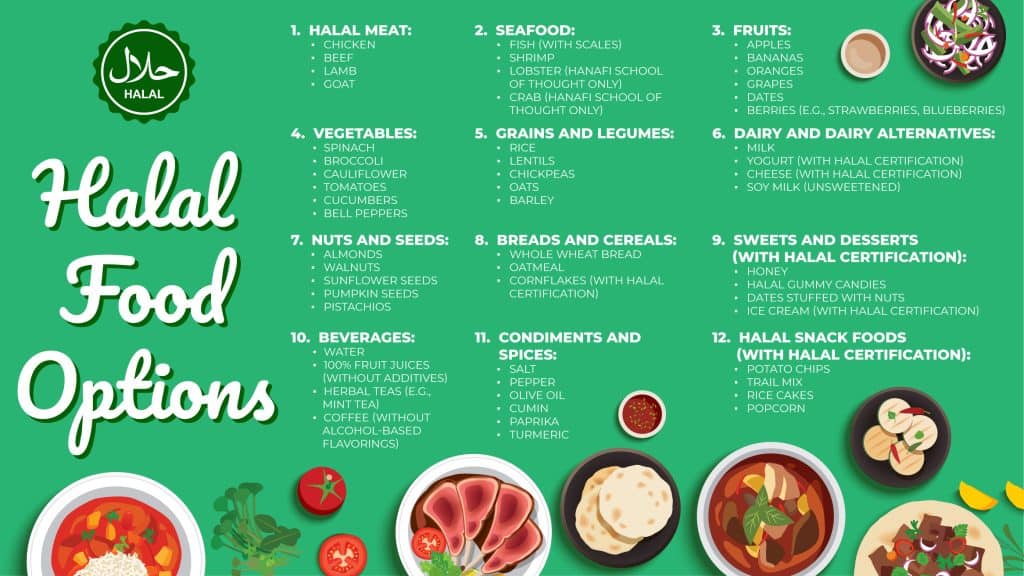Is Pepperoni Halal?
In the modern world, store shelves are overflowing with different varieties of meat. If you’re Muslim and only eat halal products, this could cause some confusion. For instance, is pepperoni halal?
The short answer is – no, store-bought pepperoni isn’t halal, and neither is the pepperoni served on top of pizzas in American restaurants. But fortunately, you can find halal pepperoni alternatives.
Read on to learn more.
Does Halal Mean No Pork?
“Halal” is a much broader term than “no pork” and involves multiple rules. Yet, pork indeed is forbidden by Islamic law.
The reason for this is that pork is viewed as unhealthy for humans, potentially containing harmful bacteria. Pigs tend to roll around in mud and eat animal by-products, which is also prohibited by halal rules.
However, the Holy Quran states that instances when there is no other food to eat other than pork are an exception to the law. In extreme circumstances, therefore, eating pork is not considered a sin.
What Qualifies as Halal?
The term “halal” refers to foods permissible by Islamic law. Halal meat cannot be a forbidden cut, such as meat from the hindquarters, or a forbidden animal, such as a pig. Meat can be considered halal if:
- God’s name and prayer are pronounced during the slaughter.
- The slaughter is humane and done with a sharp instrument. It’s best when the animal’s throat is slit, as it ensures a quick death.
- The animal must stay conscious during the slaughter.
- There should be no blood left. The animal must be hung upside down and bled dry.
- The slaughter and meat handling must be performed solely by other Muslims or People of the Book, such as Jews. Many Muslims consider kosher meat to be acceptable as it’s made following the same practices.
- The animal must have followed a natural diet without animal by-products.

Is Pepperoni Considered Halal?
To understand whether pepperoni is halal or haram (forbidden), you should first understand how pepperoni is made.
This variety of sausage is traditionally made from a mix of beef and pork. The meat is dried, cured, and spiced, meaning that all liquids, including blood, are removed.
To achieve the correct meat to fat ratio (70%/30%), butchers should use the right cuts. These are usually a steak or brisket, never the hindquarters.
The fact that meat is fully dried and a lean cut is in accordance with Islamic law. However, the traditional pepperoni recipe has several issues that don’t let Muslims enjoy this delicacy.
Firstly, part of the meat is pork, which is a forbidden animal in Islam.
Secondly, there is no way of knowing the religion of the person handling the meat. There is also no way of checking whether the animals were killed humanely and remained conscious during the process.
In other words, there is more to the prohibition of pepperoni in Islam than pork meat. Even if you manage to find pepperoni made solely from beef, it may have been made by an atheist or Satanist, and the animals could have been killed in a cruel way.
Furthermore, even if the animal conditions were correct and the person performing the slaughter is Muslim, they may have neglected reading the prayer.
Many Muslims overlook additional ingredients when checking meat for being halal. However, these ingredients are no less important, and even one addition may make halal food haram.
Often, pepperoni is made with the addition of chemicals and natural preservatives that also are considered haram.
For instance, gelatin, which is sometimes found in pepperoni, is forbidden by the Islamic religion as its source is often unknown, and it may be derived from pigs.
Carmine is another popular pepperoni ingredient – red food colorant made from insects. Any type of flavoring and alcohol, even if its content is 0.1%, are haram, too.
Different curing agents can be used to cure pepperoni. The highest-quality pepperoni is made solely with salt, which is allowed by Islamic law. However, lower-quality pepperoni may be made with chemical curing agents that are considered haram.
Thankfully, in the modern world, you can find halal pepperoni in specialized stores or some supermarkets. Search for the “halal” mark on the packaging – it’s the only way to be sure that the meat is safe to consume.
What is Halal Pepperoni Made Of?
Halal pepperoni is always made of beef, with the addition of chicken or turkey on occasion.
Technically, this can’t be called “pepperoni,” as pepperoni is always made with pork (in addition to beef). Yet, such an alternative may taste even better and is often leaner than American pepperoni.
Halal pepperoni is made from permitted cuts of meat, such as steak.
The cow slaughtering is performed with a sharp knife or another instrument that ensures a quick death. The animal shouldn’t suffer but must stay conscious. A Muslim or Jew conducting the slaughter must recite a prayer.
The preparation process plays just as an important role as the ingredients in considering meat halal. Therefore, before beef cuts become pepperoni, any remaining blood must be thoroughly removed.
An important point to note is that proper halal pepperoni shouldn’t contain any other ingredients and chemicals forbidden by Islamic law.
These include but are not limited to gelatin, food colorants, lard, and pepsin. Typically, the “halal” label implies no haram ingredients were used, but it’s also worth double-checking the ingredient list.
In Summary
Now that you know how to distinguish halal pepperoni from haram pepperoni, you can avoid food that goes against Islamic law.
Reading labels is highly important when you live or travel to non-Muslim countries. Even in Muslim regions, some foods may be made for Americans or Europeans. So be vigilant.
Hopefully, this article has provided you with more insight into what’s allowed and forbidden in the Islamic religion.







